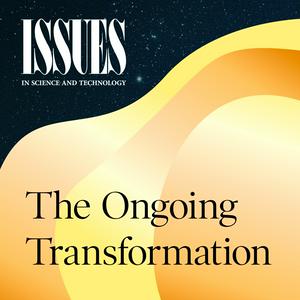People know that their pets are unique individuals. Each dog has his or her own quirks, likes, and dislikes. But what about cormorants? Research reveals that wild animals are just as uniquely individual as our pets. Rats show empathy. Crows can hold grudges. Even termites have different personalities. What would it mean if society took animal intelligence and self-awareness seriously? Lisa Margonelli explores this question with Brandon Keim, author of the recent book Meet the Neighbors: Animal Minds and Life in a More-than-Human World. Keim also wrote about animal intelligence and what it might mean for policy for Issues in the Spring 2025 issue. In this episode, Keim discusses animal personhood, movements around animal representation, and cormorants—one named Cosmos in particular. This is our last episode before our summer break, but we will be back in September with a miniseries about rethinking disasters. Write to us at
[email protected] with your thoughts on this season and other ideas you’d like us to explore. Subscribe to the podcast and our newsletter to be the first to hear when we return. Resources: Learn more about animal individuality by reading Brandon Keim’s book, Meet the Neighbors: Animal Minds and Life in a More-than-Human World.Keim explores the policy impacts of new research on animal intelligence in his Issues piece, “When That Chickadee Is No Longer ‘A Machine With Feathers.’”Visit Keim’s website to find more of his work.
